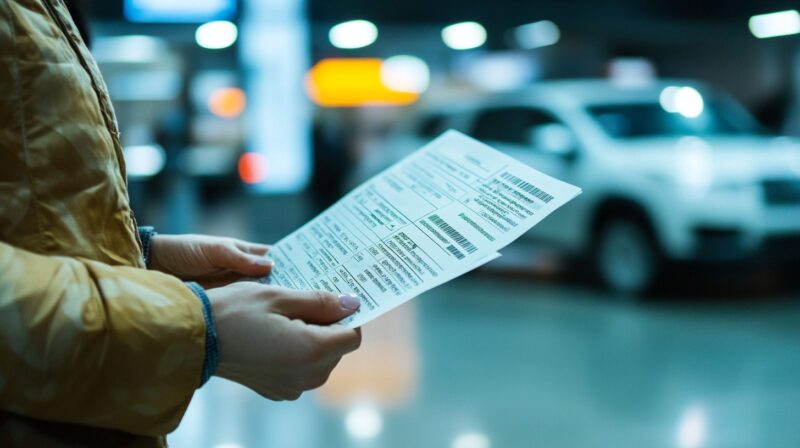A background check serves as a verification process employers use to confirm a candidate’s credentials, criminal record, employment history, and more.
It’s a critical step in hiring that influences decisions and contributes to a secure, compliant workplace.
Candidates often face uncertainty during this stage, unsure of how long it will take or what it involves. The lack of clear timelines and communication can create stress, especially when waiting for a job offer that depends on it.
Let us take a look at how long a background check takes when someone is about to apply for a new position.
Average Background Check Timeframes

In most cases, a background check falls within a timeframe of 1 to 5 business days.
- Criminal background history
- Prior employment validation
- Academic credentials
The timeline often reflects how efficiently data can be retrieved through automated systems or direct database access.
Some checks are significantly faster, producing results almost instantly. Digital tools and databases allow for quick lookups, especially when only surface-level information is needed.
Basic criminal history screenings or identity matches are often delivered in real-time or within a few minutes.
- Identity verification via SSN trace
- Basic criminal database screening
- Employment records through automated systems (e.g., The Work Number)
On the other end of the spectrum, sometimes a background check can stretch far longer than average.
International verifications or manual document retrieval add complexity, often resulting in delays. Agencies must coordinate across time zones, language barriers, and sometimes even different compliance regulations.
- Verifications requiring contact with overseas institutions or employers
- Manual retrieval of academic or legal records
- Countries with limited digital infrastructure or slower bureaucratic processes
Timeframes vary significantly depending on the tools, scope, and responsiveness involved. Quick turnarounds benefit from automation and accessible records, while delays usually point to manual methods or international cooperation hurdles.
Employers and candidates should account for this variability when planning hiring timelines or onboarding steps.
Key Factors Influencing Timelines
Wider or more detailed checks naturally require more time. For instance, running both domestic and international verifications adds layers to the process.
Speed also depends on how records are stored. Digitally accessible records are processed faster than those in manual archives.
Delays often begin with the candidate. Incorrect dates, typos in names, or missing consent forms can disrupt timelines. Fast and complete responses to follow-up requests help prevent these slowdowns.
Third-party involvement introduces further variability. Delays in receiving confirmation from past employers, universities, or certification boards are common.
International checks face hurdles such as differing record-keeping systems, language barriers, and time zone lags.
Types of Background Checks & Their Turnaround Times
Different types of background checks serve distinct purposes, and each comes with its own expected timeline.
Some are nearly instant due to automation, while others rely on third-party cooperation and manual processes, extending the overall wait time.
1. Criminal Background Checks

Criminal background checks are among the most commonly requested by employers.
They help determine if a candidate has any history of criminal offenses and can include local, federal, or even international searches.
Turnaround times vary by jurisdiction and method of retrieval.
- Usually processed within 1 to 3 business days through state repositories or county courthouses.
- Often faster, with results available within 24 hours through national court systems.
- Can take up to 20 business days, depending on the country’s legal infrastructure and cooperation with foreign agencies.
2. Employment Verification

Employers want to ensure that job applicants have accurately represented their work history.
Employment verification confirms positions held, job titles, and dates of employment. Speed largely depends on the method used.
- Automated Databases (e.g., The Work Number):
- Instant or near-instant results.
- Ideal for companies already registered with the database.
- Manual Employer Contact:
- Typically 2 to 7 business days.
- Delays can occur if HR departments are unresponsive or former employers are no longer in operation.
3. Education Verification

Academic claims are validated by contacting educational institutions directly or by using third-party verification services.
Accuracy in reporting school names, degree types, and graduation dates is critical to avoid delays.
- Provide fast results when schools participate in digital verification programs.
- Take several business days.
Extended time may result when dealing with closed institutions or older records stored in archives.
4. Driving Records (MVR)
Employers hiring for roles involving vehicle operation often review driving history to assess risk. State laws determine the method and timing of record release.
- Digital Requests: Instant to 1–3 business days through online portals.
- Mail-In or Certified Requests: Can take weeks due to manual handling, signature requirements, and delivery times.
5. Drug Testing

Drug tests are usually mandated for roles requiring safety compliance or adherence to federal regulations.
Turnaround varies based on the method used.
- On-Site Testing:
- Completed in around 10 minutes.
- Results are available shortly after testing.
- Lab-Based Testing:
- Processing window of 3 to 10 business days.
- Additional review time is needed when confirmation testing or Medical Review Officer (MRO) evaluations are required.
6. Credit Checks

Used primarily for roles involving financial responsibilities, credit checks assess a candidate’s fiscal behavior and creditworthiness.
- 2 to 4 business days.
- Errors in identification or frozen credit files may trigger delays.
7. Professional Certification Checks

Jobs requiring licenses or certifications demand validation of those credentials. These checks are done through regulatory bodies or licensing boards.
- Around 2 business days.
- Delays may arise when boards have outdated records or only offer verification via mail.
8. Global Watchlist or Identity Verifications

These checks help flag individuals on government watchlists or sanctions databases.
Identity verifications also confirm that SSNs or national ID numbers match official records.
- Often completed within a single business day.
- Frequently automated and integrated into initial screening systems.
Common Delays & How to Avoid Them
Delays in background checks often occur for two main reasons: candidate-driven errors and external institutional factors.
Each type presents challenges that can disrupt hiring timelines or lead to missed opportunities. Identifying these causes and applying preventive strategies is essential.
Candidate-Driven Delays
Mistakes made during the initial submission process are among the most common reasons for holdups.
Even small errors can require reprocessing, which adds several days or more to the overall timeline.

Incorrect or incomplete information:
- Social Security numbers that don’t match public records
- Misspelled legal names or inconsistent aliases
- Inaccurate employment dates or job titles
Slow or no responses to requests:
- Ignoring follow-up emails asking for additional documents
- Failing to sign consent forms or waivers in a timely manner
- Not checking spam folders for important communication
When candidates do not stay alert and responsive during the verification process, delays often compound unnecessarily.
External Delays
Factors outside a candidate’s control can also introduce friction. Some institutions and agencies lack automated systems, which increases the need for manual processing and communication.
Hiring surges can overwhelm verification providers, pushing turnaround times well past average expectations. Below are frequent external causes of delay:
- Schools or past employers using outdated record systems
- Delays in fax or mail delivery for paper-based verification requests
Third-party limitations:
- Agencies processing high volumes during peak hiring seasons
- Verification vendors limited by international communication timelines
Even when candidates do everything correctly, these hurdles may extend the process without warning.
Best Practices to Prevent Delays

Proactive steps can greatly reduce the risk of both internal and external disruptions.
Candidates who pay close attention to detail and stay responsive create fewer opportunities for slowdowns.
- Preparation and accuracy:
- Double-check all submitted details before hitting send
- Match personal data exactly with what’s on file with schools, employers, and agencies
- Responsiveness and communication:
- Respond promptly to all requests, questions, or follow-ups
- Provide alternative contacts for past employers, if needed
- Document readiness:
- Keep digital copies of transcripts, certifications, and job references available
- Monitor email regularly to catch requests as soon as they arrive
Minor improvements in submission habits and awareness can shave days off verification timelines.
Candidates who are prepared and engaged give themselves a clear advantage in moving through the process efficiently.
The Bottom Line
Usually, a background check finishes within 2 to 5 business days. However, extended timelines are not unusual, especially when manual processes or international verifications are involved.
Responsiveness, record accuracy, and the method used to retrieve data all play a part in determining how quickly results are delivered.
Preparing well in advance, providing correct documentation, and responding promptly help keep the process efficient and stress-free.

